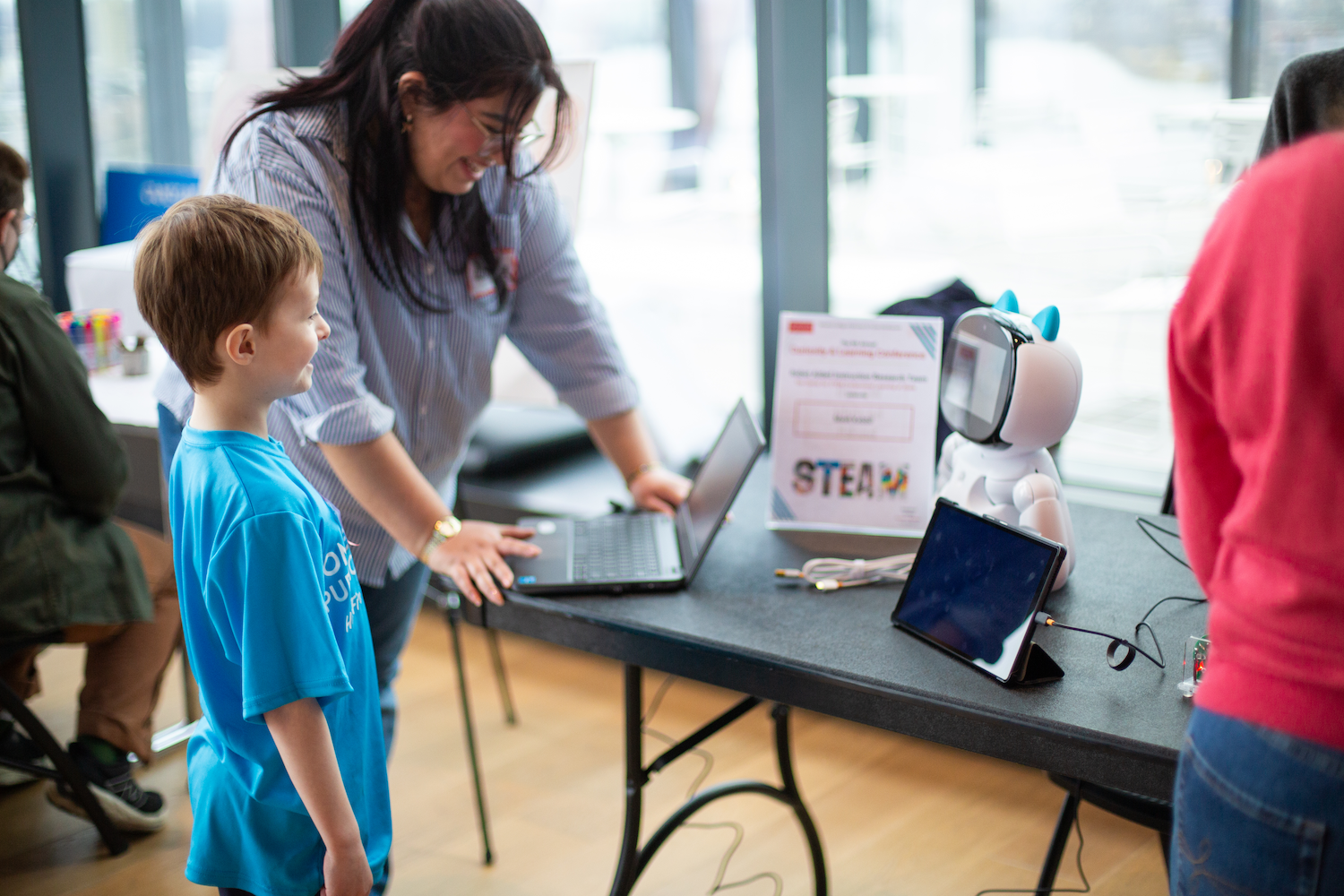How Big Questions Can Spark Science Learning

Photo by J Kimball
How Big Questions Can Spark Science Learning
Embracing sensemaking in the face of uncertainty can empower deeper understanding
How do clouds float? And how do planes fly through them? Curiosity about everyday questions such as these can become a powerful catalyst for learning about science. Sensemaking in light of this uncertainty can empower students and transform classrooms into places of scientific exploration. By learning how to leverage sensemaking in light of uncertainty, educators can learn to empower students and transform classrooms into places of eye-opening scientific exploration.
For this Conversations with the Dean, Dean Penny Bishop is joined by BU Wheelock’s Eve Manz and TJ McKenna. Manz, an associate professor of science education, is the author of Productive Uncertainty in Science Education: Engaging Students in Meaningful Science Practice. A clinical assistant professor of science education, McKenna is the director of the Center for STEM Professional Learning at Scale and author of Making Sense of Sensemaking: Designing Authentic K–12 STEM Learning Experiences.
Highlights from the Conversation
The importance of science from an early age
Science is a set of practices that we can systematically build on over those years—children from their earliest years of schooling can be doing the things that scientists do. They can be creating models, they can be developing explanations, they can be analyzing and interpreting data. . . . Science isn’t being a science-smart science person, and it isn’t about knowing a particular science term or a fact. It’s about contributing knowledge and ways of doing science to a community.
Eve Manz
How science learning has changed
Students aren’t passively sitting in those rows, just kind of absorbing the information from a teacher who’s explaining things from the front of the room. It’s dynamic—students are arguing, students are drawing. Students are thinking about ways to collect evidence, ways to design new investigations, new experiments. And so it really kind of changes the game away from students being a passive recipient of the information and being more active in their learning.
TJ McKenna
Creating meaning through sensemaking
Sensemaking is that process of trying to make sense of the world around you and giving yourself the time to pause and say, Wait a minute, do I understand that? Do I understand all of the pieces? Would I be able to explain these pieces? And rather than just being told the answer, you get the chance to observe, ask questions, talk to your classmates, talk to family, friends, and try to figure it out. . . . It’s really where the magic is, it’s this journey of trying to put the pieces together, trying to come up with these different models. And it’s really powerful because that is how people learn.
Motivating engagement with uncertainty
Children are much more likely to use evidence if there’s multiple kinds of evidence, multiple things they could see that could support a claim. . . . Uncertainty is what motivates scientists to do the activities they do. We have to use that uncertainty as a fundamental resource for our children. . . . Productive uncertainty is figuring out those key places to build uncertainty into children’s experience or young people’s experience so that they engage more meaningfully and with more capability in the practices of science.
Eve Manz
Conversations with the Dean are a series of webinars hosted by Dean Bishop that explore some of the most pressing topics in education. Learn more about Conversations with the Dean.
Comments & Discussion
Boston University moderates comments to facilitate an informed, substantive, civil conversation. Abusive, profane, self-promotional, misleading, incoherent or off-topic comments will be rejected. Moderators are staffed during regular business hours (EST) and can only accept comments written in English. Statistics or facts must include a citation or a link to the citation.